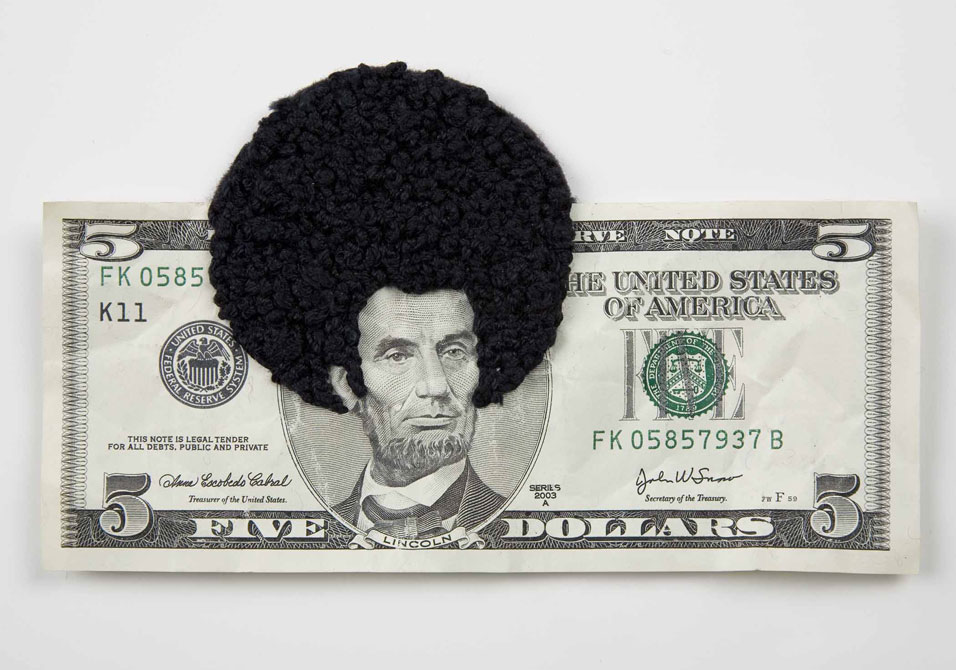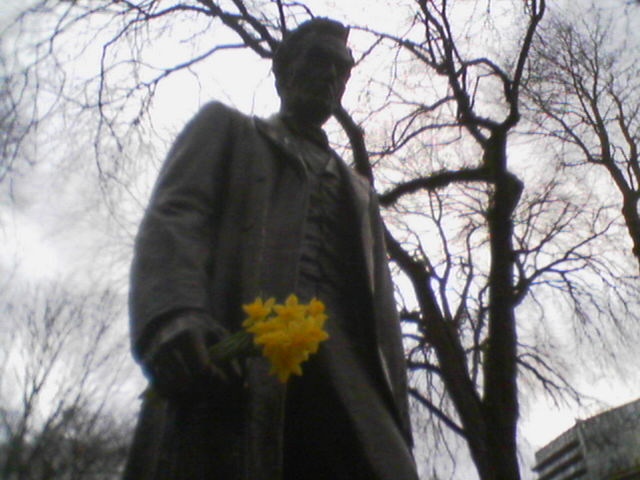
Our neighbor Barb had a bunch of people over this morning to watch the inauguration ceremonies, and the mood was festive: Coffee and bubbly for breakfast will do that. But it wasn’t just the refreshment. There was relief, and anticipation, and — OK, yes — hope. A sense that, as another neighbor, Karen, put it, “now we can have our flag back.” And indeed, she and her husband Ted had hung theirs on their front porch. Inspired, my wife followed suit. Beats all those years we’ve had the “Don’t Tread on Me” flag folded in the bedroom drawer.
What struck me most during this long but compelling (and by the looks of it, very cold) morning was that the power of language has reasserted itself at the center of our national conversation. Like Franklin Roosevelt and Martin Luther King Jr. and his model, Abraham Lincoln, Barack Obama speaks with a plain but lofty straightforwardness. He assumes a certain level of intelligence on the part of his listeners, an ability to follow an argument. He was gracious in victory, which might be a tougher task than being gracious in defeat. He talked down to no one, but encouraged everyone to look up. When he spoke to a particular constituency it was not, as is usual with politicians, with an air of pandering or cynical duplicity but with a measure of inclusiveness and respect. And he melded, as no other politician I can think of since John F. Kennedy, the descriptive and inspirational aspects of language: a vision, yes, but also a caution that realizing a vision requires hard work. Obama’s pie is not in the sky. It’s grounded, practical, sustaining. And if it’s his recipe, it takes a lot of cooks.
I have no illusion that miracles will be worked. Barack Obama waves no wands, and he will make mistakes — probably a lot of them. He is only, it seems prudent to remind some of his more fervid followers, human. But he represents in so many ways the best of what being human means. And by loving and respecting language — by being able to articulate both his own goals and his vision of what our vast and intermingled culture can and ought to be — he helps all of us articulate our own roles in the body politic.
I’ve long believed that Abraham Lincoln is one of the tiny handful of genuine literary geniuses the United States has produced. In the beginning was the word, and it created reality. Oratorically, Obama is is no Lincoln, at least not yet: For clarity and conciseness and passion tethered to intelligence, nothing can match the Gettysburg Address. But clearly, from a literary point of view, Obama is in the Lincoln grain. He has the gifts to be, in the Lincolnian sense, a citizen artist. And it’s been a long time since the White House has seen the likes of that.
So, let the flag fly. Maybe this time, we can look at it as a promise and not a provocation.


